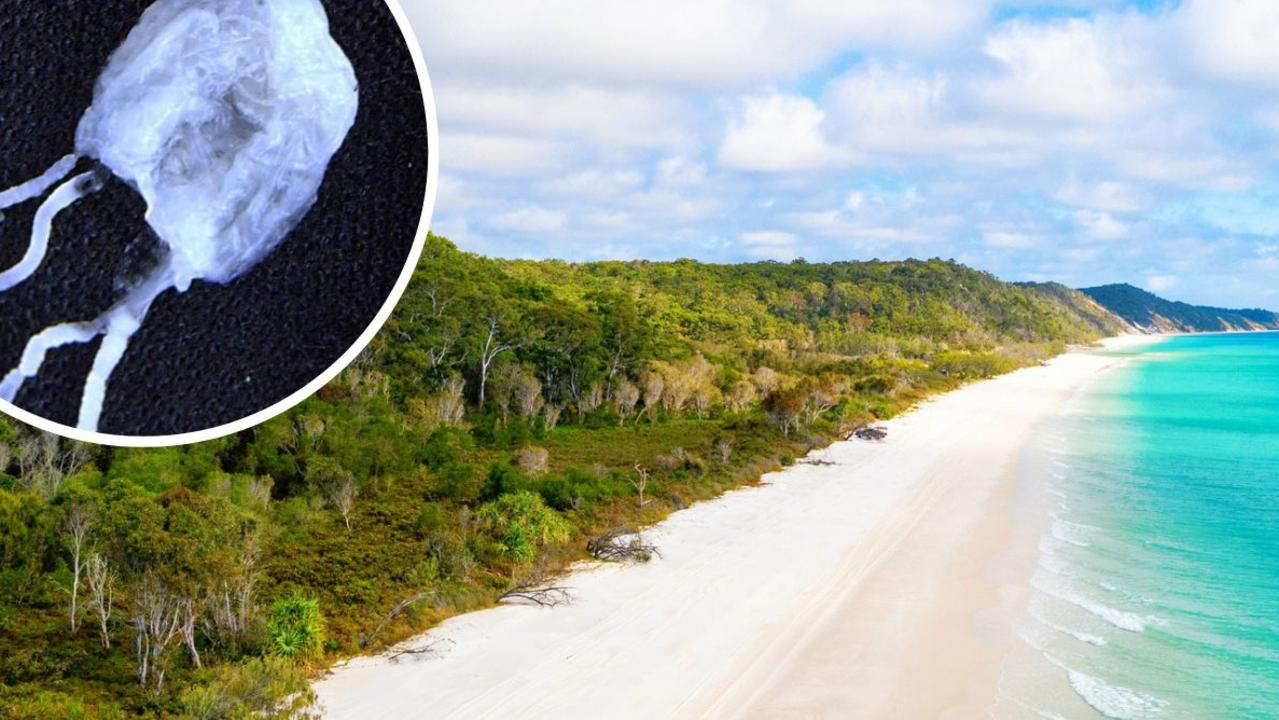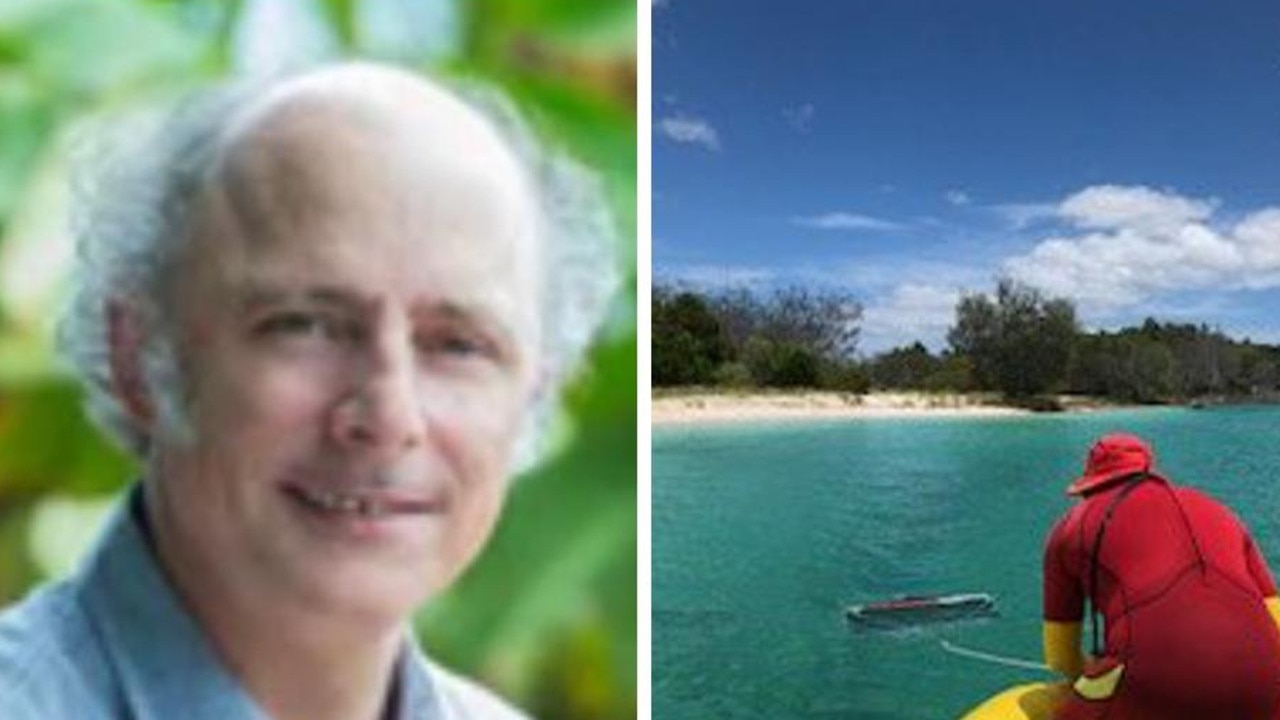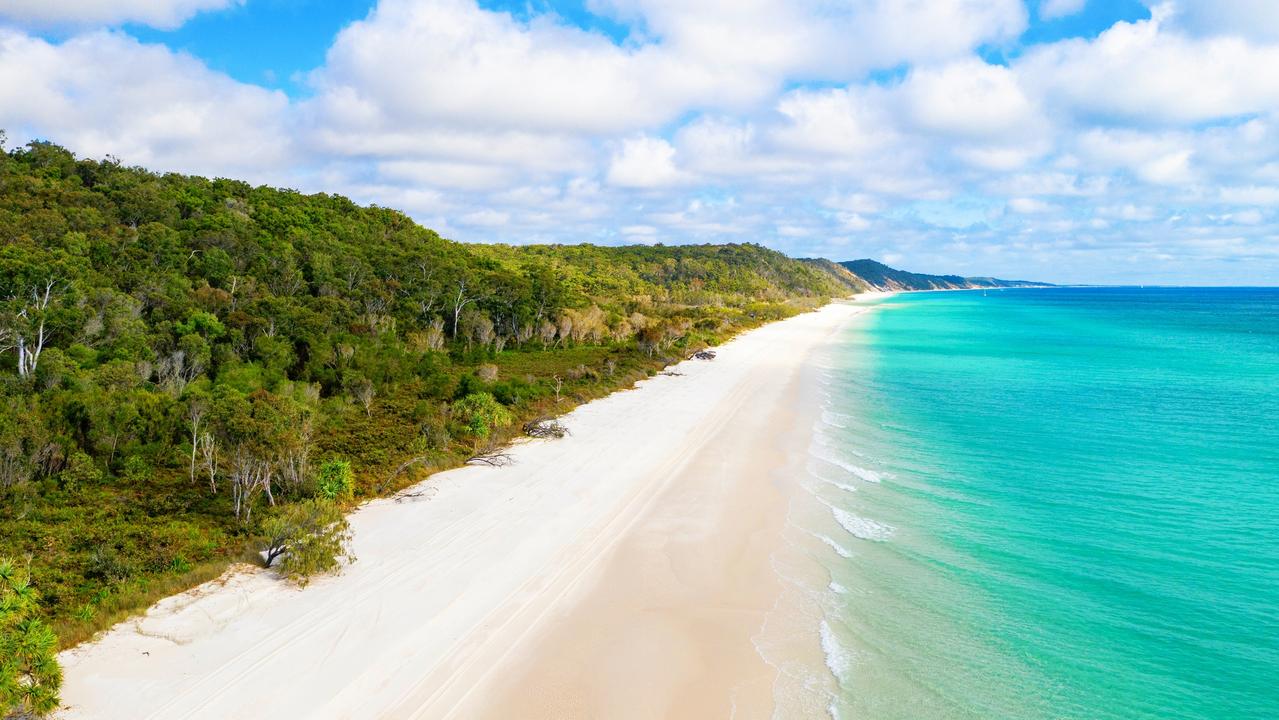Kylie Pitt calls for more research on K’gari irukandji jellyfish
Six severe jellyfish stings in four days on the world’s biggest sand island have prompted a global jellyfish expert to call for more understanding on irukandji activity on K’gari.

Fraser Coast
Don't miss out on the headlines from Fraser Coast. Followed categories will be added to My News.
Calls by a leading expert in jellyfish for authorities to monitor irukandji jellyfish at K’gari have come after six people were treated for suspected irukandji stings by Queensland Ambulance paramedics in four days, four of them needing an emergency airlift to hospital.
Between January 13-16, 2024, six people reported marine stings, most of them suspected as irukandji: five of them children, two of them were mere hours apart at Awinya Creek on Monday afternoon, and at midday on Tuesday a rescue chopper was called to Awinya Creek for another sting.

Griffith University marine ecologist Dr Kylie Pitt has called for more monitoring of the jellyfish around K’gari in order to know where their hotspots are as to inform visitors of areas of risk.
Irukandji are a type of box jellyfish, tiny in size, but with venomous tentacles that can reach up to 1m long and inflict an incredible amount of pain, and in some cases, lethal.
Dr Pitt said they are “not new” in K’gari, particularly on the western beachside and visitors were recommended not to swim due to dangerous marine life, mainly stingers and sharks, in the waters around K’gari.
The initial sting of an irukandji is quite mild and can take up to half an hour to have an effect, making it difficult to confirm the sting was by irukandji, she said.
Irukandji Syndrome, caused by a number of different venomous jellyfish, is painful and possibly lethal, and has been reported further south of K’gari, she said.

Irukandji have not yet been caught south of K’gari though, and data on the elusive, tiny “thumb-size jellyfish” has so far been unreliable, she said.
But recent technology involving the use of environmental DNA, where a sample of water can be analysed to find matching irukandji DNA, can be used to gather much needed data around the presence of the jellyfish within bodies of water.
State government and local authorities could use this technology to understand more about the jellyfish within the waters at K’gari to identify hotspots, and where the jellyfish are most active throughout the year, she said.
She mentioned a similar study underway on irukandji in Ningaloo Marine Park in Western Australia, where visitors and tourists wanting to swim with whale sharks have also fallen victim to the stings.

University of Sunshine Coast Professor David Schoeman said he was not surprised to see more irukandji in the water, particularly after the last few weeks of southeast winds as well as the water becoming more favourable to the species.
As to whether the irukandji would start breeding south of the island he was doubtful, as the larvae of the jellyfish required coral and rocks found north of the island, rather than the sandy ocean floor more common in southeast Queensland.

Department of Environment and Science advises visitors to the island:
Marine wildlife including sharks and marine stingers are present in the waters off Fraser Island.
Swimming in the ocean off K’gari is not recommended and is undertaken at own risk.
Beaches of K’gari are unpatrolled with strong ocean currents – drownings have occurred.
Take care around all lakes and creeks and at rocky shores with unpredictable waves, depth can be unpredictable, avoid submerged vegetation.
Even a great swimmer can get into trouble – always swim with a buddy.
Marine stingers and other dangerous marine life are present, especially during the summer months, in the waters off K’gari and the Great Sandy Strait.
Marine stingers can cause serious injury or death.
Swimming is not recommended.
More Coverage
Originally published as Kylie Pitt calls for more research on K’gari irukandji jellyfish








